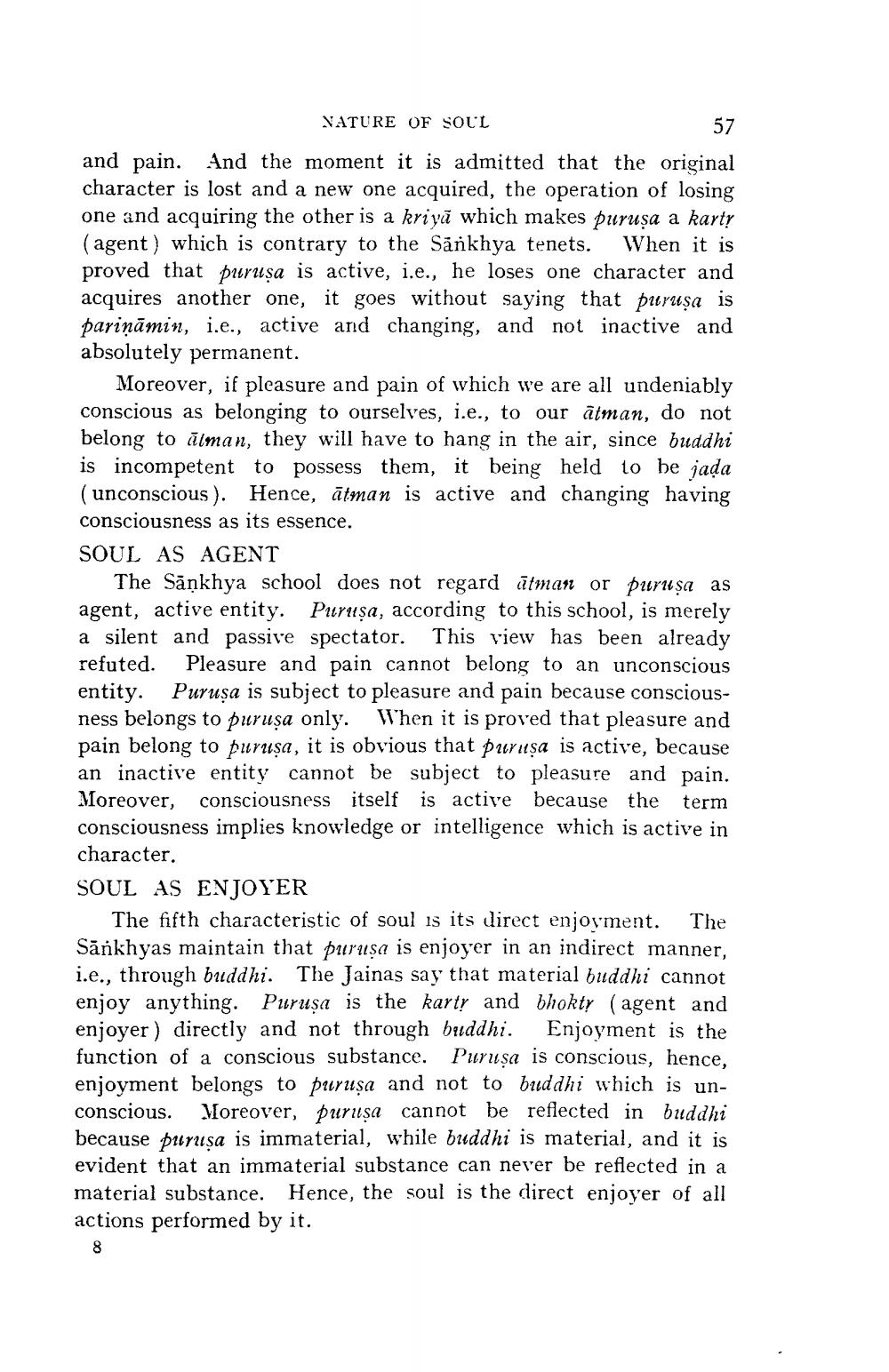________________
NATURE OF SOUL
57
and pain. And the moment it is admitted that the original character is lost and a new one acquired, the operation of losing one and acquiring the other is a kriya which makes puruşa a karty (agent) which is contrary to the Sankhya tenets. When it is proved that purușa is active, i.e., he loses one character and acquires another one, it goes without saying that puruşa is pariņāmin, i.e., active and changing, and not inactive and absolutely permanent.
Moreover, if pleasure and pain of which we are all undeniably conscious as belonging to ourselves, i.e., to our atman, do not belong to alman, they will have to hang in the air, since buddhi is incompetent to possess them, it being held to be jaḍa (unconscious). Hence, atman is active and changing having consciousness as its essence.
SOUL AS AGENT
The Sankhya school does not regard atman or purusa as agent, active entity. Purușa, according to this school, is merely a silent and passive spectator. This view has been already refuted. Pleasure and pain cannot belong to an unconscious entity. Puruşa is subject to pleasure and pain because consciousness belongs to purusa only. When it is proved that pleasure and pain belong to purușa, it is obvious that purusa is active, because an inactive entity cannot be subject to pleasure and pain. Moreover, consciousness itself is active because the term consciousness implies knowledge or intelligence which is active in character.
SOUL AS ENJOYER
The
The fifth characteristic of soul is its direct enjoyment. Sankhyas maintain that purusa is enjoyer in an indirect manner, i.e., through buddhi. The Jainas say that material buddhi cannot enjoy anything. Purusa is the karty and bhokty (agent and enjoyer) directly and not through buddhi. Enjoyment is the function of a conscious substance. Puruşa is conscious, hence, enjoyment belongs to puruşa and not to buddhi which is unconscious. Moreover, puruşa cannot be reflected in buddhi because purușa is immaterial, while buddhi is material, and it is evident that an immaterial substance can never be reflected in a material substance. Hence, the soul is the direct enjoyer of all actions performed by it.
8




